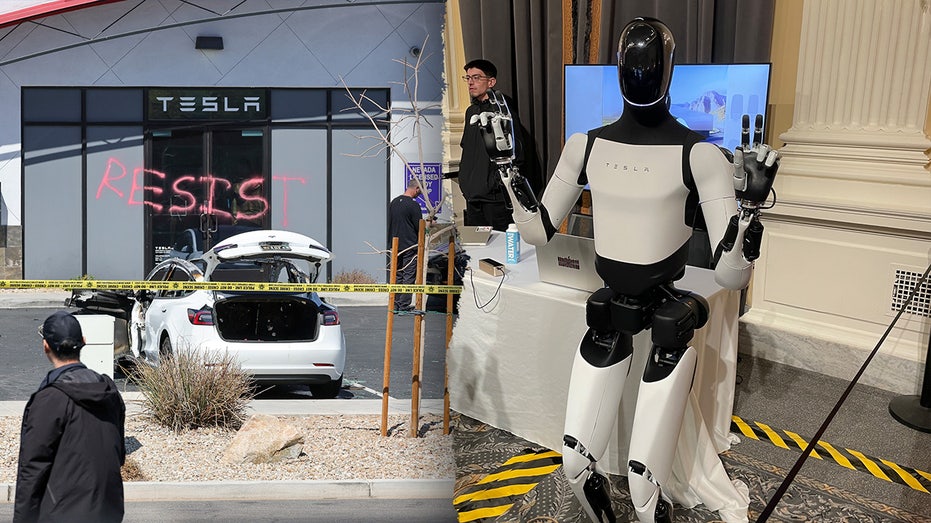Republican Donors’ Quiet, Dangerous Plans for the Next Presidency
From JD Vance falsely claiming that Haitian immigrants in Ohio are eating pets to Trump railing against domestic “enemies,” Republicans’ more unhinged talking points have gotten a lot of airtime this election season. That’s understandable: That rhetoric is dangerous in its own right, fueling very real threats to the people Republicans are targeting. On climate change, the Trump campaign’s more colorful talking points—that wind turbines are “driving whales crazy,” and that the planet’s “actually getting cooler”—have eaten up the relatively small amount of attention global warming has gotten on the campaign trail. Particularly when it comes to climate and energy, though, right-wingers’ bonkers rhetoric can obscure all the more concrete and boring ways they’re planning to put more money into their donors’ pockets.Consider Carla Sands, the former chiropractor who served as Trump’s ambassador to Denmark. Now on staff at the America First Policy Institute, or AFPI, Sands has expounded on any number of theories about climate change and climate policy: that kids are “killing themselves to save the planet,” and that advocates for more pedestrian-friendly cities want to require people to “get special permission to leave.” With AFPI Board Chair Linda McMahon now heading up Trump’s transition team, Politico recently reported that Sands might now be in a position to take on a senior position in Trump’s next administration, should he win in November. That’s obviously concerning, but it’d be a mistake to see the candidates who say the most outlandish things as the ones who pose the biggest threat. Arguably more dangerous are the kind of well-considered plans being put forward by the likes of the American Exploration and Production Council, or AXPC, a lobby group whose internal strategy documents were recently leaked by the climate nonprofit Fieldnotes. The road map presented in August to AXPC board members—including EQT Corporation’s Toby Rice and EOG Resources’ Michael Donaldson—doesn’t opine on the supposed authoritarianism of 15-minute cities or even the sorts of culture war–ish tangents that Project 2025 concerns itself with.It’s a relatively straightforward document outlining which policies AXPC—on behalf of its members—would like to see repealed and implemented, and the prospects for doing so depending on the outcome of federal elections this November. Among the lobby group’s top concerns are revisions to the Greenhouse Gas Reporting Program regulations for the oil and gas sector required by the Inflation Reduction Act, and the expiration of the 2017 Tax Cuts and Jobs Act. Specifically, AXPC wants to preserve fossil fuel companies’ long-standing ability to write off the so-called “intangible” costs of drilling for oil and gas—i.e., labor, land surveys, drainage, and other expenses that can represent as much as 80 percent of the cost of extraction.There’s nothing especially outlandish about a trade association advocating for policies that will pad their members’ bottom lines; that’s the reason these groups exist. Unsurprisingly, as AXPC’s leaked policy road map shows, those policies are easier to come by if Republicans control more parts of the federal government. Accordingly, 72 percent of donations from AXPC’s political action committee have flowed to Republicans this election cycle. Among those are people who say plenty of things that the lobby group probably wouldn’t stand behind publicly. Ohio Representative Bill Johnson—who’s gotten $5,000 from the AXPC PAC this cycle—has written that the climate is “constantly changing,” and dismissed carbon dioxide as “the air that we exhale when we breathe.” Steve Scalise, another recipient of AXPC PAC funds, has said similarly that “we do know that the earth’s temperature changes—it goes up and down.”Like any other corporate interest, the fossil fuel industry doesn’t give to people like Johnson and Scalise because of what they write or say but because of how they vote. To that end, politicians with much less unhinged theories about global warming get money from corporate polluters, too—including plenty of Democrats; one of AXPC’s biggest priorities is expanding their support among so-called “moderate Democrats.” The document also notes that Democrat Vicente Gonzales, a top recipient of AXPC PAC funds, co-sponsored legislation allowing for drillers to immediately recoup intangible drilling costs. Two things can be true at once. Republicans say a lot of bizarre and dangerous things these days that deserve attention. But at the same time, fixating on whatever wild thing MAGA world says about wind turbines creating bird graveyards might well be helping to pull attention away from the GOP and its donors’ quieter, more dangerous plans for how to govern—and their similarly quiet efforts to build bipartisan consensus for implementing them.

From JD Vance falsely claiming that Haitian immigrants in Ohio are eating pets to Trump railing against domestic “enemies,” Republicans’ more unhinged talking points have gotten a lot of airtime this election season. That’s understandable: That rhetoric is dangerous in its own right, fueling very real threats to the people Republicans are targeting. On climate change, the Trump campaign’s more colorful talking points—that wind turbines are “driving whales crazy,” and that the planet’s “actually getting cooler”—have eaten up the relatively small amount of attention global warming has gotten on the campaign trail. Particularly when it comes to climate and energy, though, right-wingers’ bonkers rhetoric can obscure all the more concrete and boring ways they’re planning to put more money into their donors’ pockets.
Consider Carla Sands, the former chiropractor who served as Trump’s ambassador to Denmark. Now on staff at the America First Policy Institute, or AFPI, Sands has expounded on any number of theories about climate change and climate policy: that kids are “killing themselves to save the planet,” and that advocates for more pedestrian-friendly cities want to require people to “get special permission to leave.” With AFPI Board Chair Linda McMahon now heading up Trump’s transition team, Politico recently reported that Sands might now be in a position to take on a senior position in Trump’s next administration, should he win in November.
That’s obviously concerning, but it’d be a mistake to see the candidates who say the most outlandish things as the ones who pose the biggest threat. Arguably more dangerous are the kind of well-considered plans being put forward by the likes of the American Exploration and Production Council, or AXPC, a lobby group whose internal strategy documents were recently leaked by the climate nonprofit Fieldnotes. The road map presented in August to AXPC board members—including EQT Corporation’s Toby Rice and EOG Resources’ Michael Donaldson—doesn’t opine on the supposed authoritarianism of 15-minute cities or even the sorts of culture war–ish tangents that Project 2025 concerns itself with.
It’s a relatively straightforward document outlining which policies AXPC—on behalf of its members—would like to see repealed and implemented, and the prospects for doing so depending on the outcome of federal elections this November. Among the lobby group’s top concerns are revisions to the Greenhouse Gas Reporting Program regulations for the oil and gas sector required by the Inflation Reduction Act, and the expiration of the 2017 Tax Cuts and Jobs Act. Specifically, AXPC wants to preserve fossil fuel companies’ long-standing ability to write off the so-called “intangible” costs of drilling for oil and gas—i.e., labor, land surveys, drainage, and other expenses that can represent as much as 80 percent of the cost of extraction.
There’s nothing especially outlandish about a trade association advocating for policies that will pad their members’ bottom lines; that’s the reason these groups exist. Unsurprisingly, as AXPC’s leaked policy road map shows, those policies are easier to come by if Republicans control more parts of the federal government. Accordingly, 72 percent of donations from AXPC’s political action committee have flowed to Republicans this election cycle. Among those are people who say plenty of things that the lobby group probably wouldn’t stand behind publicly. Ohio Representative Bill Johnson—who’s gotten $5,000 from the AXPC PAC this cycle—has written that the climate is “constantly changing,” and dismissed carbon dioxide as “the air that we exhale when we breathe.” Steve Scalise, another recipient of AXPC PAC funds, has said similarly that “we do know that the earth’s temperature changes—it goes up and down.”
Like any other corporate interest, the fossil fuel industry doesn’t give to people like Johnson and Scalise because of what they write or say but because of how they vote. To that end, politicians with much less unhinged theories about global warming get money from corporate polluters, too—including plenty of Democrats; one of AXPC’s biggest priorities is expanding their support among so-called “moderate Democrats.” The document also notes that Democrat Vicente Gonzales, a top recipient of AXPC PAC funds, co-sponsored legislation allowing for drillers to immediately recoup intangible drilling costs.
Two things can be true at once. Republicans say a lot of bizarre and dangerous things these days that deserve attention. But at the same time, fixating on whatever wild thing MAGA world says about wind turbines creating bird graveyards might well be helping to pull attention away from the GOP and its donors’ quieter, more dangerous plans for how to govern—and their similarly quiet efforts to build bipartisan consensus for implementing them.



